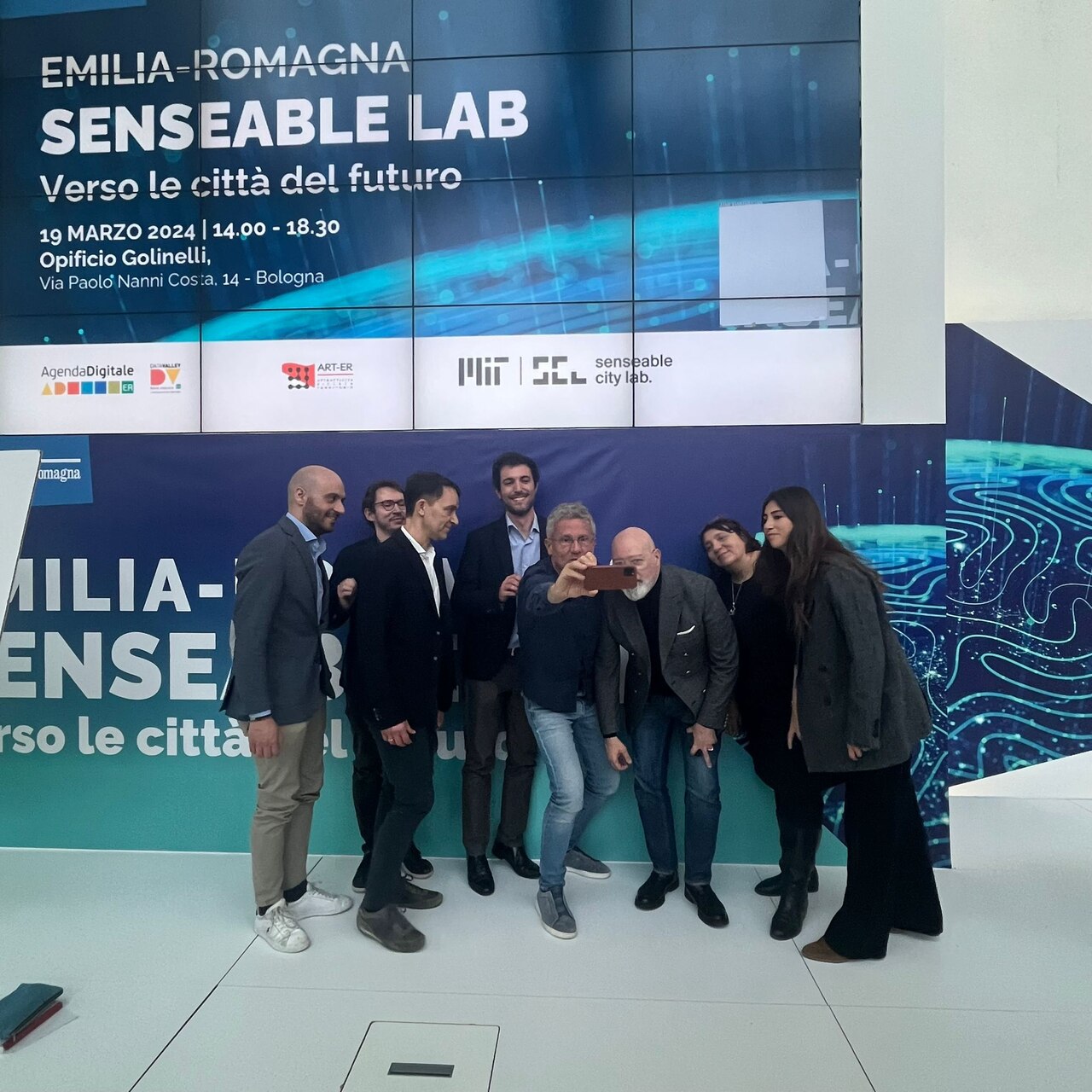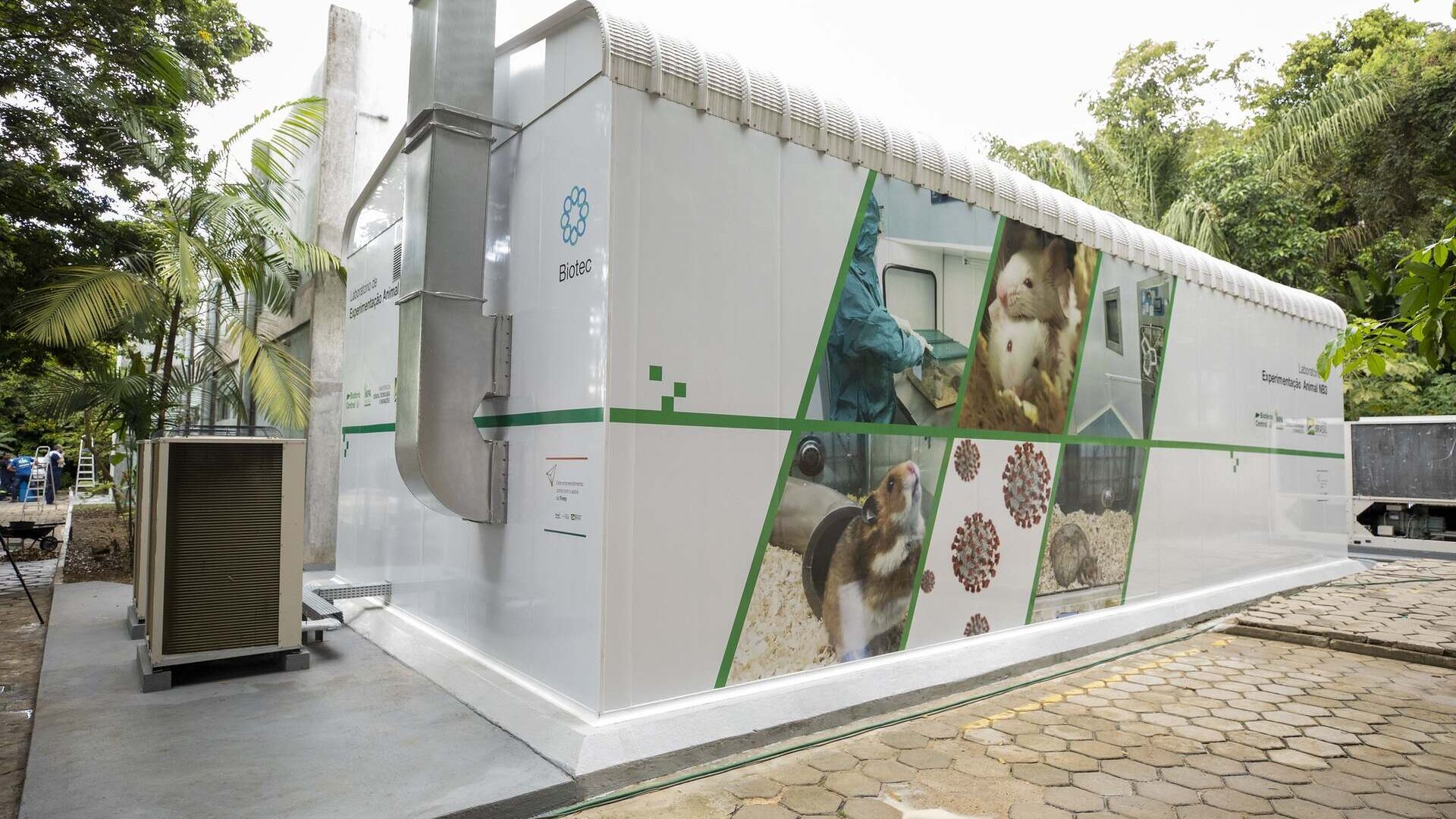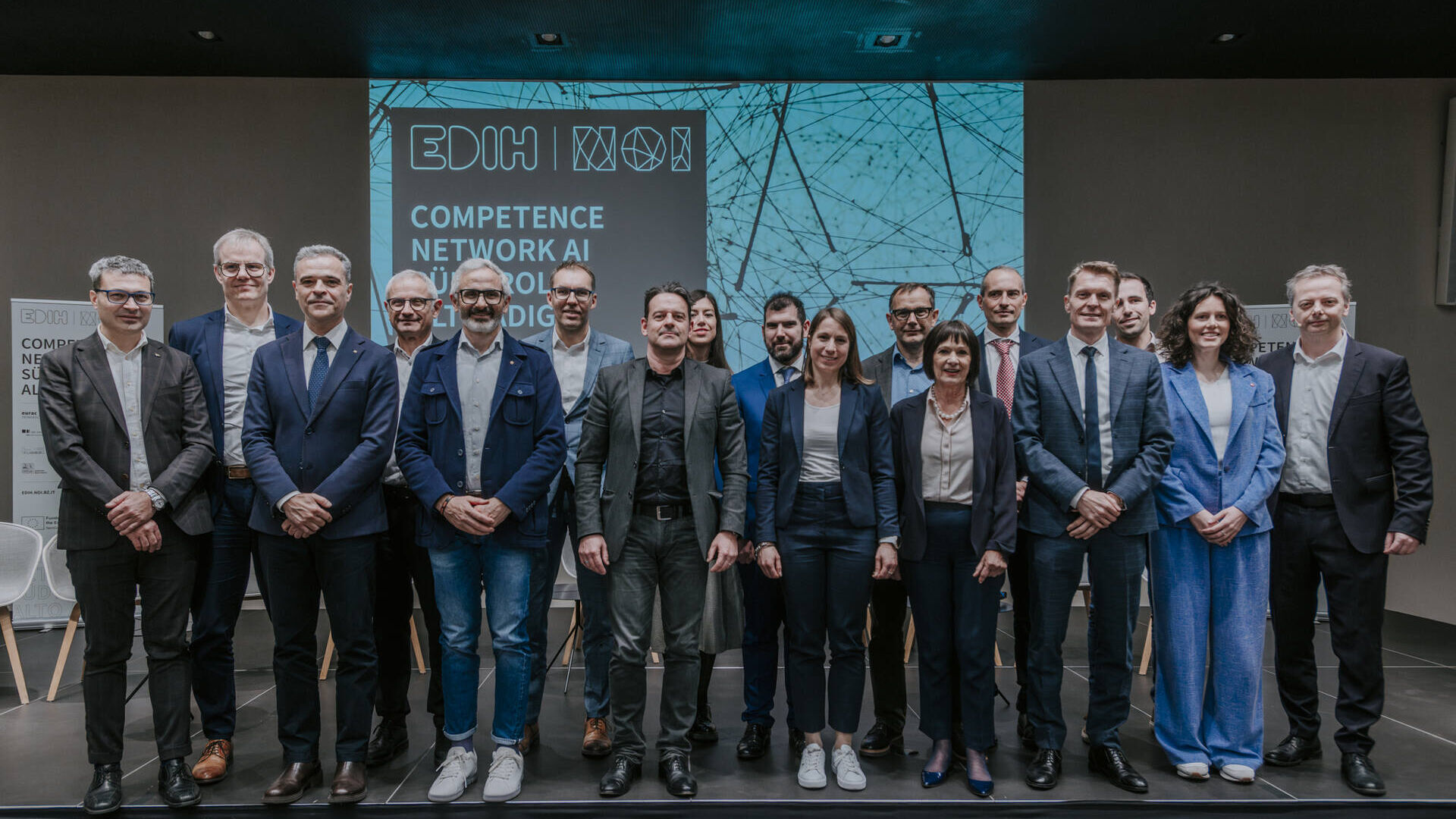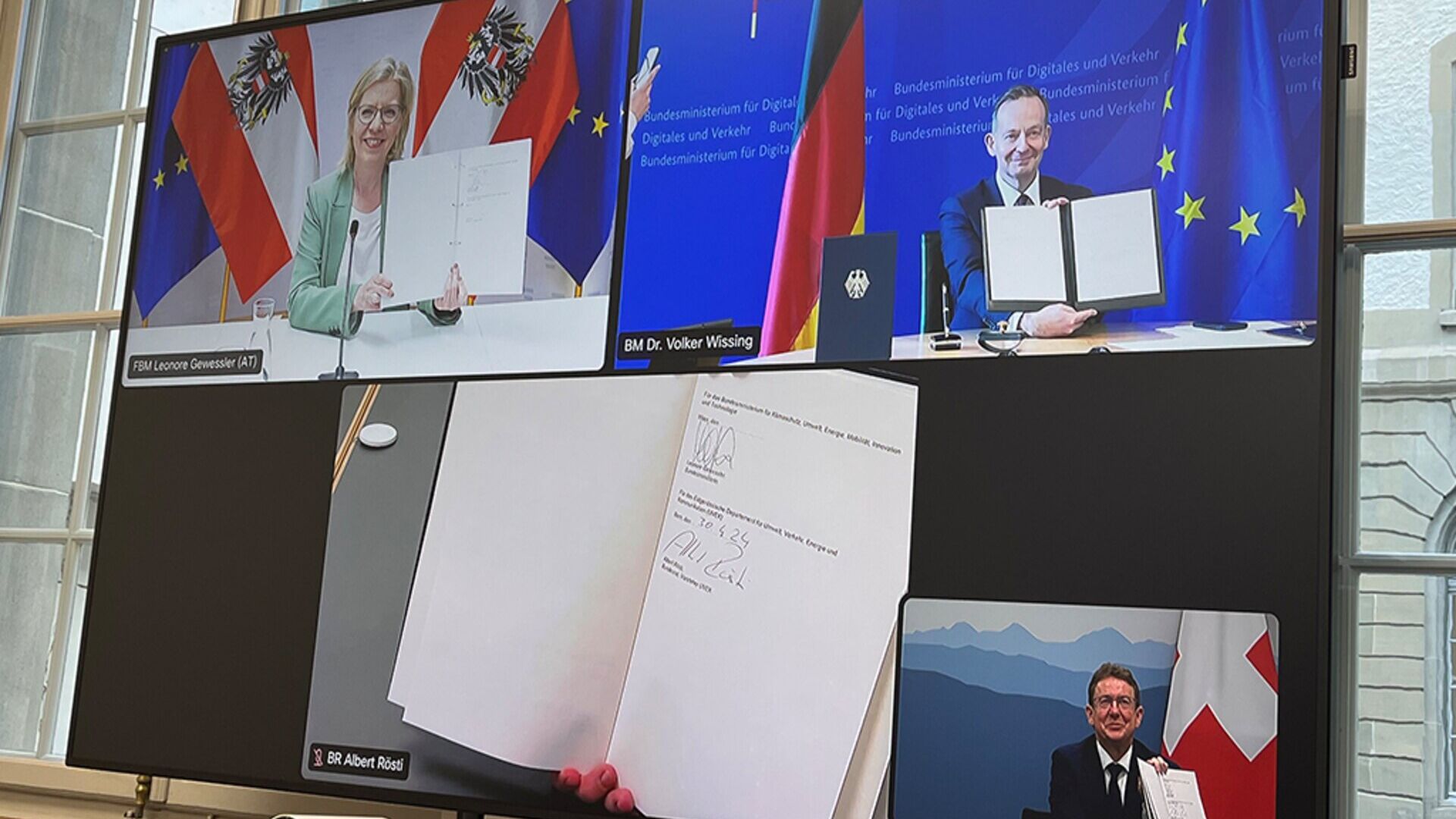The Massachusetts Institute of Technology in Bologna for smart cities
Illustrated is the arrival of the Senseable Lab in the Technopole of the Emilia-Romagna capital on the cities of the future of the prestigious Boston University
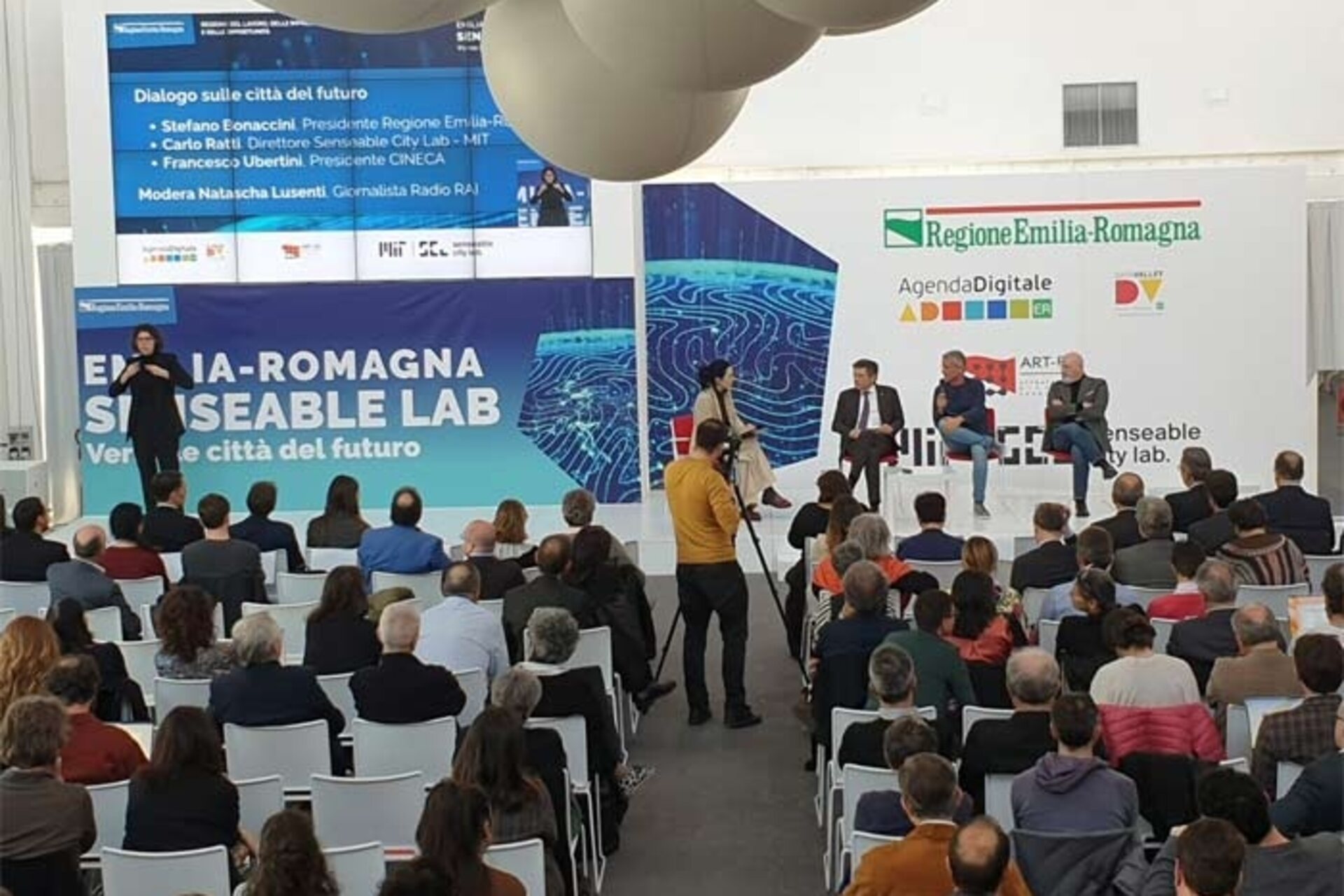
Designing the cities of the future and guiding their development towards advanced urban communities, capable of adapting to the needs of citizens and the environment, in the name of full sustainability.
And use new technologies, from Big Data processing to Artificial Intelligence, to improve the interaction between cities themselves, people and digital.
These are, in summary, the aims of the "Senseable City Lab", the laboratory that is part of the Department of Urban Studies and Planning of the Massachusetts Institute of Technology (MIT) in Boston, which has started a feasibility study in view of its establishment at the Tecnopolo of Bologna from 2025, following the agreement signed with the Emilia-Romagna Region in November last year.
The Technopole turns on the super computer to light up the future
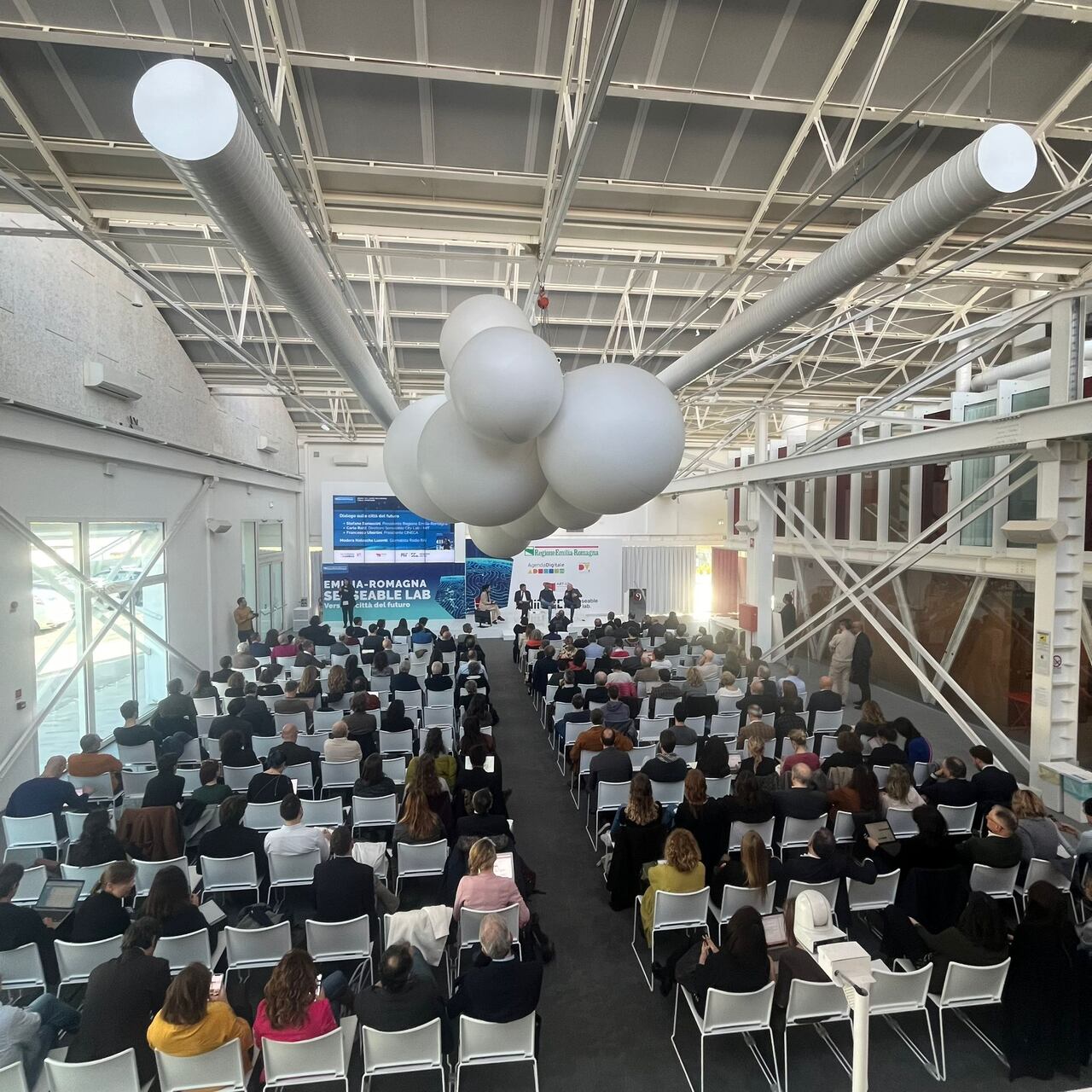
The “premiere” at a conference at the Opificio Golinelli in the presence of politicians, MIT and CINECA
It was discussed at the Opificio Golinelli, in Bologna, at the conference “Emilia-Romagna Senseable Lab, towards the cities of the future” with the aim of strengthening dialogue and involving local interlocutors, starting from institutions and research bodies up to to citizens, around the research and innovation potential of the project.
An appointment desired by the Emilia-Romagna Region and attended by the President Stefano Bonaccini, the Councilor for Research and the Digital Agenda, Paola Salomoni, the Director of the MIT Senseable City Lab, Carlo Ratti, and the President of CINECA, Francesco Ubertini .
It is a first stage of the collaboration between the Senseable City Lab and Emilia-Romagna, an opportunity for discussion between experts, researchers, administrators, entrepreneurs and citizens, as well as the opportunity to introduce MIT scientists to the research network regional and the territorial context in which the laboratory will be inserted.
The Bologna Technopole at the heart of the digital revolution
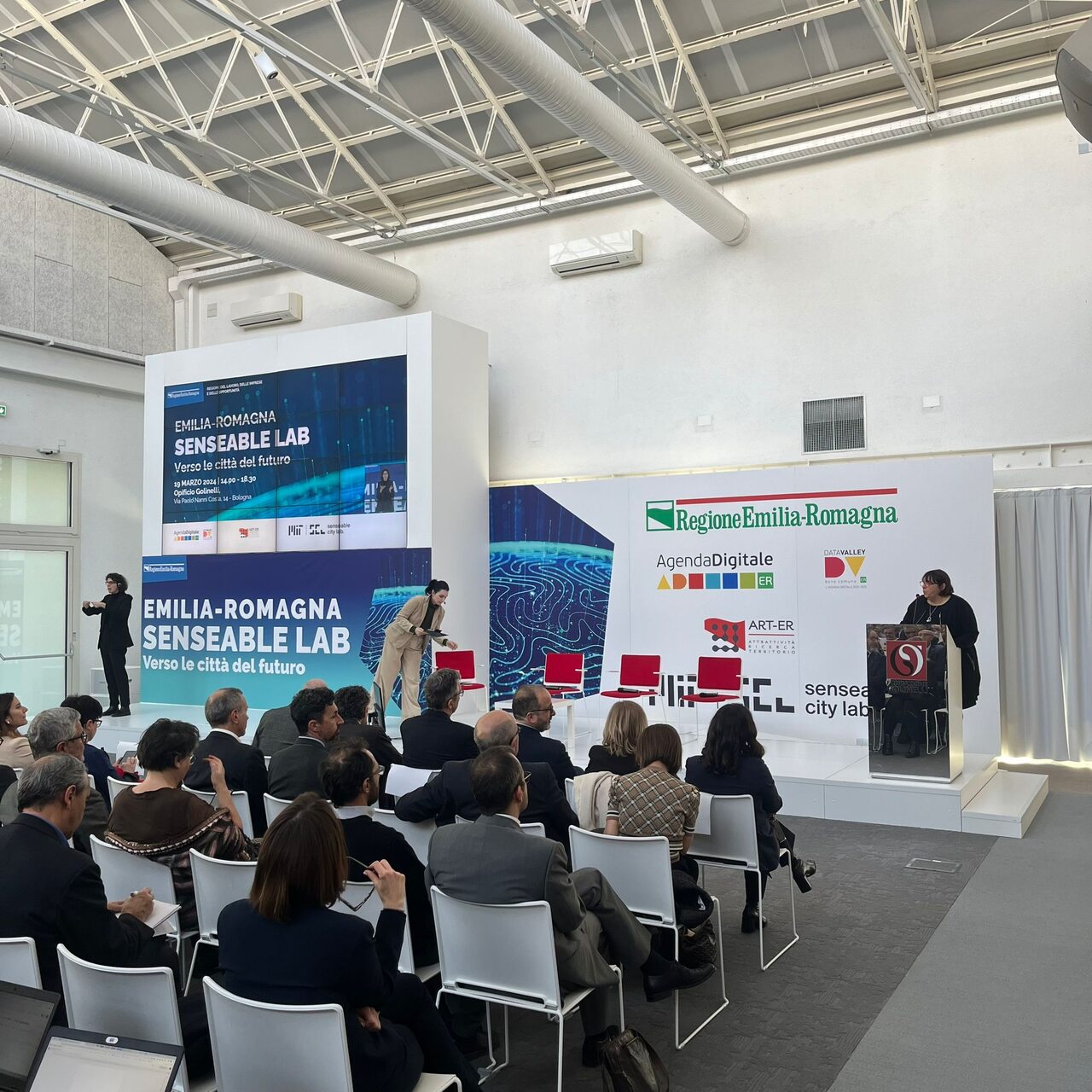
In twenty years, over 130 projects have been completed in the United States with more than 500 scientific publications
The Senseable City Lab, an omni-disciplinary research laboratory at the Massachusetts Institute of Technology, carries out its research on the interaction between cities, people and technologies, exploring how the spread of digital devices and telecommunications networks are influencing the urban environment.
Active for twenty years, the laboratory directed by Professor Carlo Ratti has activated collaborations with dozens of institutions, companies, foundations and public bodies around the world over time.
As mentioned, the Senseable City Lab belongs to the Department of Urban Studies and Planning of MIT, which has been in first place in the world ranking of universities for many years.
The laboratory's work draws on diverse fields such as urban planning, architecture, design, engineering, computer science, natural sciences and economics, to capture the multidisciplinary nature of urban problems and provide research and applications that allow us to improve the lives of citizens.
Since 2004, the Senseable City Lab has grown rapidly to over 130 completed projects with more than 500 scientific publications.
Bologna new capital of Big Data and AI for the human habitat
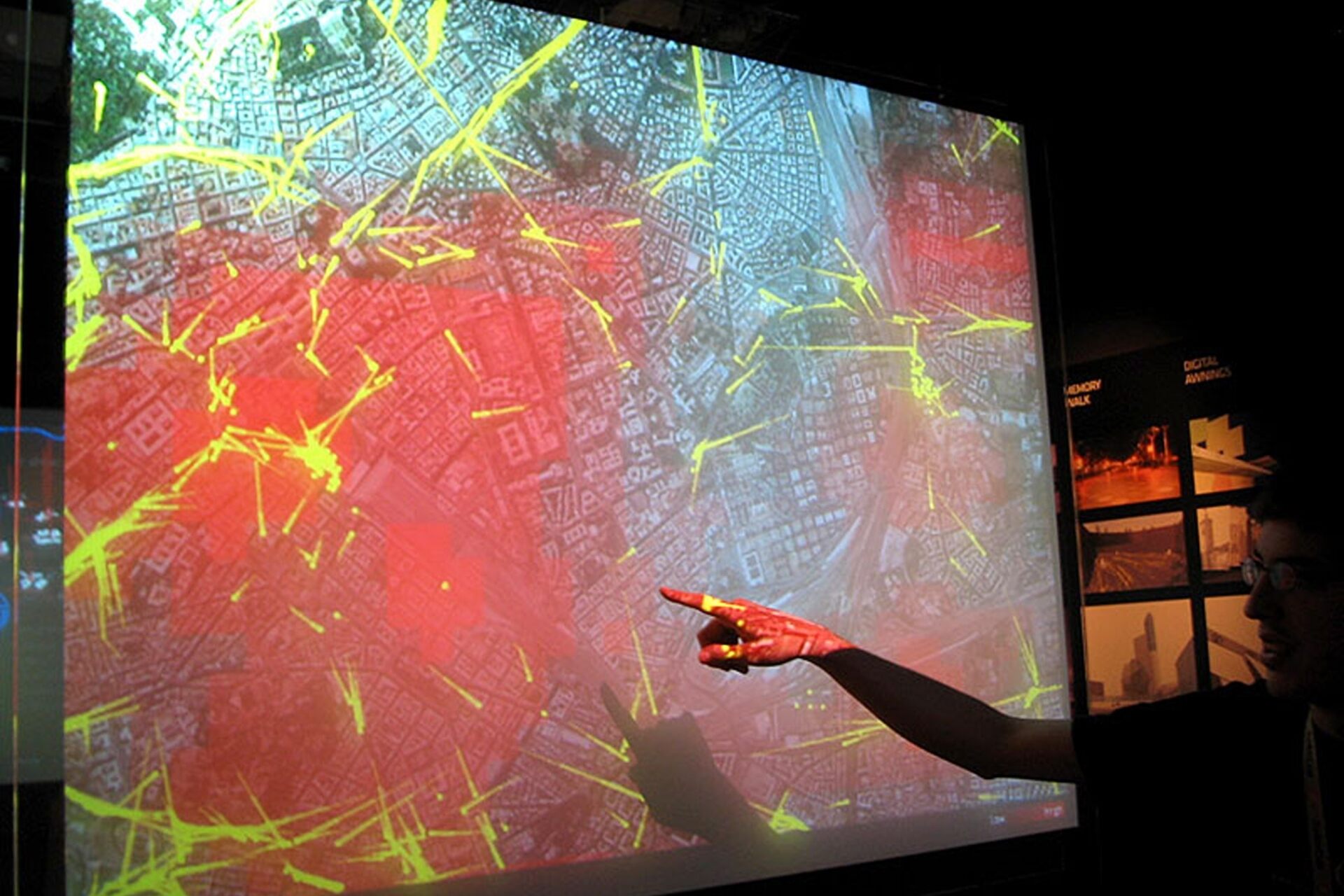
Stefano Bonaccini: “The large infrastructure investment made for the Data Valley is strategic”
“Another innovative experience of great international importance arrives in Emilia-Romagna, at the Bologna Tecnopolo”, said Stefano Bonaccini.
“The large infrastructure investment we supported to create the Data Valley here was strategic and allowed us to create a competitive digital ecosystem capable of attracting enormously prestigious players from all over the world, as demonstrated by the agreement we signed last year. last year with MIT. The Senseable City Lab project, through the use of sensors and artificial intelligence, brings the urban environment and the digital environment into dialogue to analyze local, concrete issues and resolve them with the help of Big Data and new technologies".
Why in Bologna the UN University on AI, Big Data and the climate
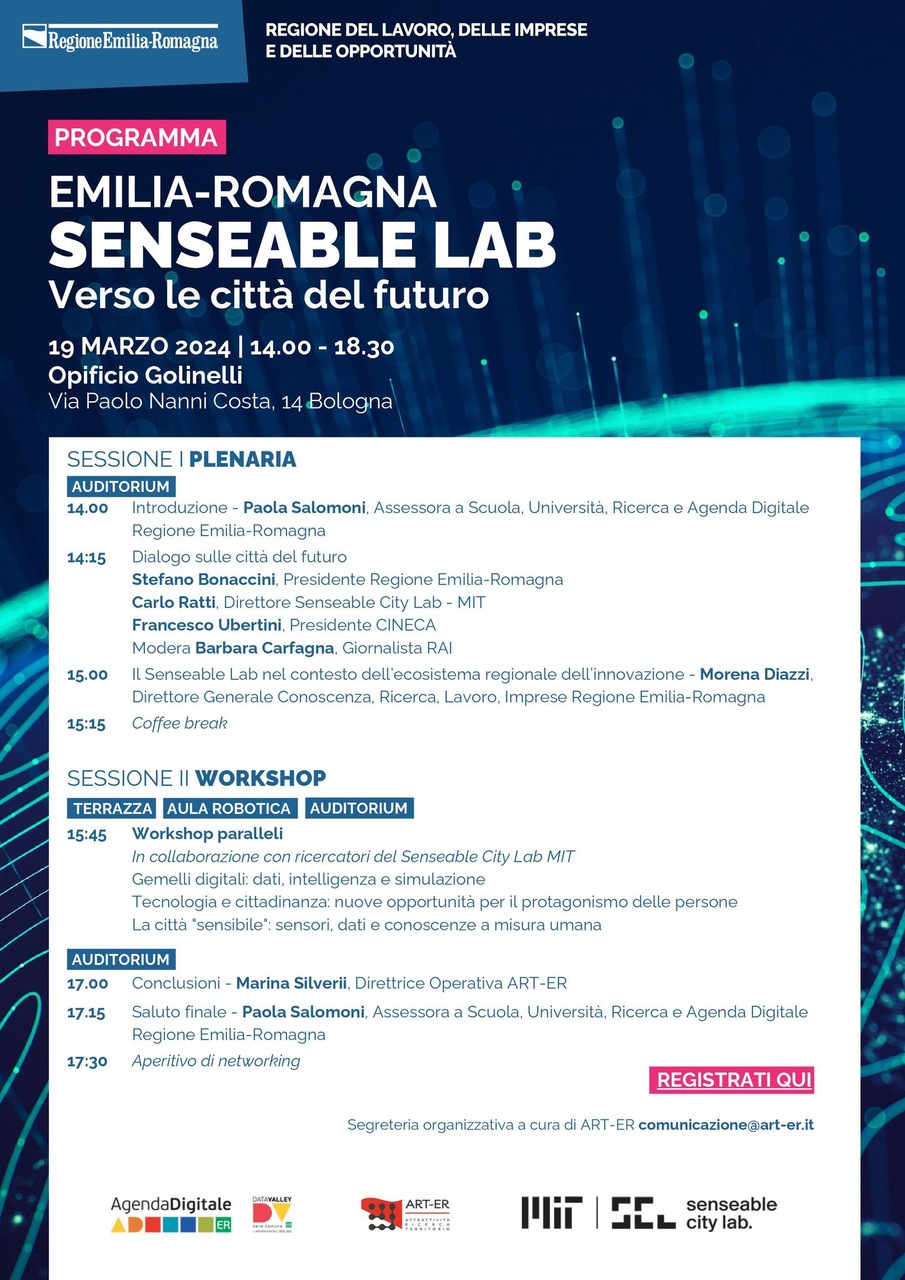
Paola Salomoni: “The integration between digital and ecological transition is at the center of the programming”
“An approach that fits well with the regional Digital Agenda, which has placed the integration between digital and ecological transition at the center of its programming, with the aim of seeking new solutions for useful and necessary objectives for the growth and development of communities ”, he illustrated Paula Salomoni.
“Decarbonisation, sustainable mobility, improving air quality and combating climate change are topics we will increasingly have to deal with in the future. And, through research, innovation and talent, we will be able to give positive answers to overcome the challenges that await us”.
A large-scale digital twin of the Earth will be born in Bologna
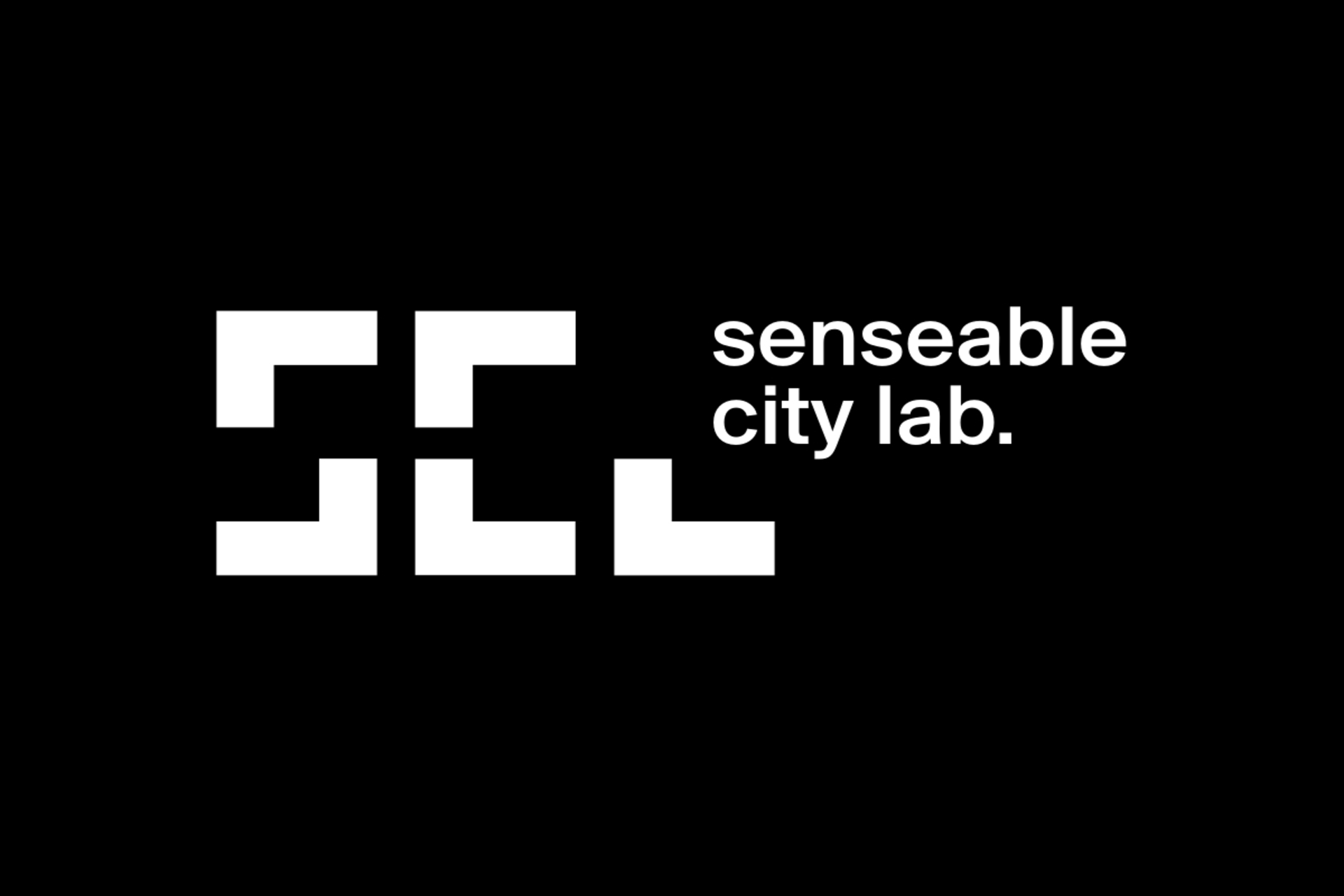
Carlo Ratti: “We will analyze cities as living, intelligent and reactive, i.e. sustainable, organisms”
“In this historical moment, in which environmental challenges are closely intertwined with technological ones, the collaboration between the MIT Senseable City Lab and the Emilia-Romagna Region opens a new chapter in exploring the synergies between digital and environmental sustainability, towards the reinterpretation of the urban fabric", he added Carlo Ratti.
“Together, we are committed to analyzing cities as living, intelligent and responsive organisms, capable of being sustainable and improving the quality of life of their citizens.”
Study on rain in Bologna to beat urban pollution
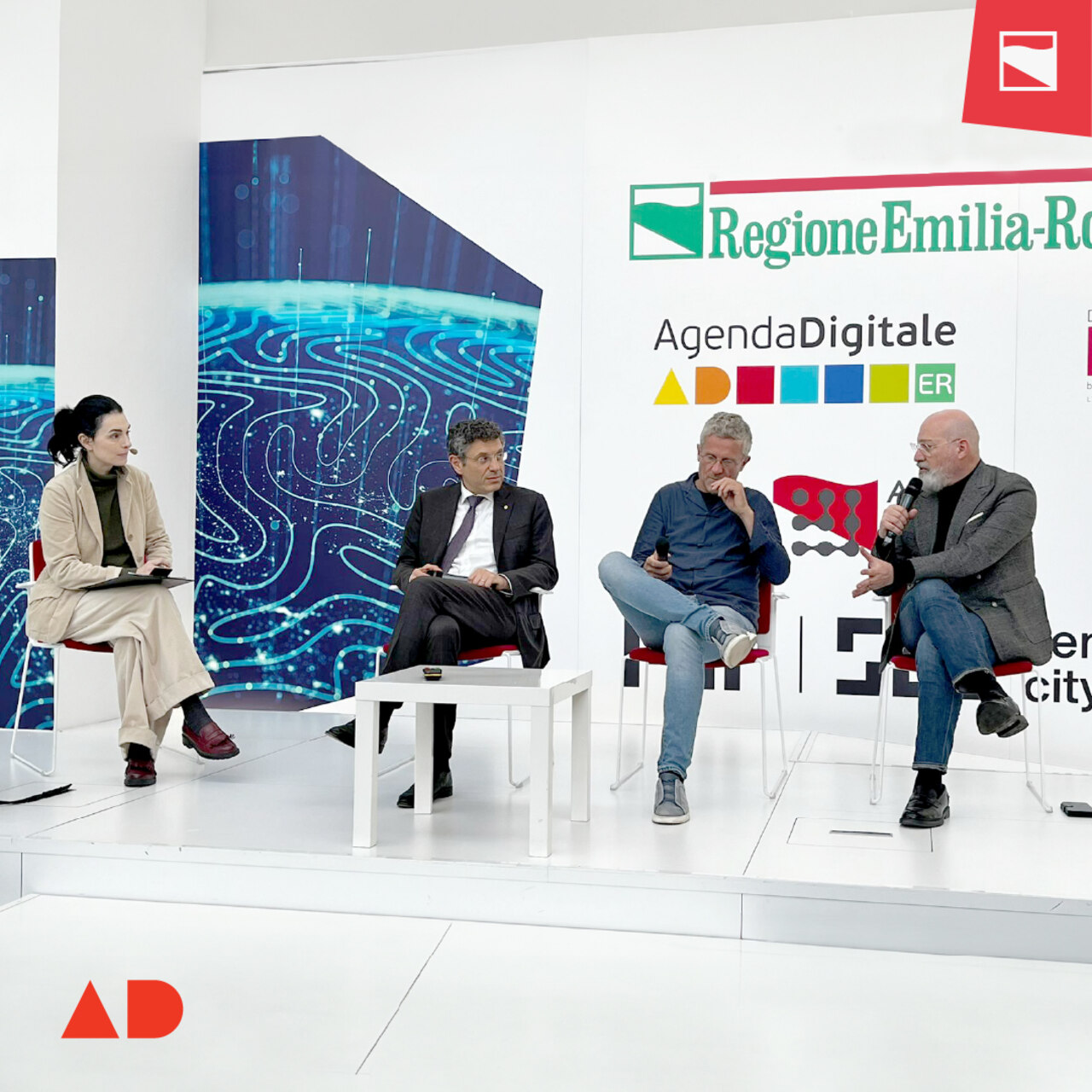
Francesco Ubertini: “Leonardo is the driving force behind our ability to model and simulate complex scenarios”
“Digital twins offer an accurate and dynamic representation of complex systems: from manufacturing processes, to cities, to humans, to the entire planet. Supercomputers like Leonardo are the engine that powers our ability to model and simulate complex scenarios, making it possible to design and optimize sustainable solutions for the challenges of the future”, explained Francesco Ubertini.
“In this context, the agreement recently signed between the Emilia-Romagna Region and the Senseable City Lab of MIT in Boston for the creation of a laboratory on the cities of the future at the Tecnopolo Ex Manifattura Tabacchi in Bologna represents a further step forward in research and in the implementation of innovative solutions for the urban challenges of the 21st century. With its own resources, combined with skills in the use of new technologies, CINECA is available for the transformation towards a more equitable and sustainable society, in which technology is truly at the service of man".
The Data Center of the European Meteorological Center has been inaugurated in Bologna
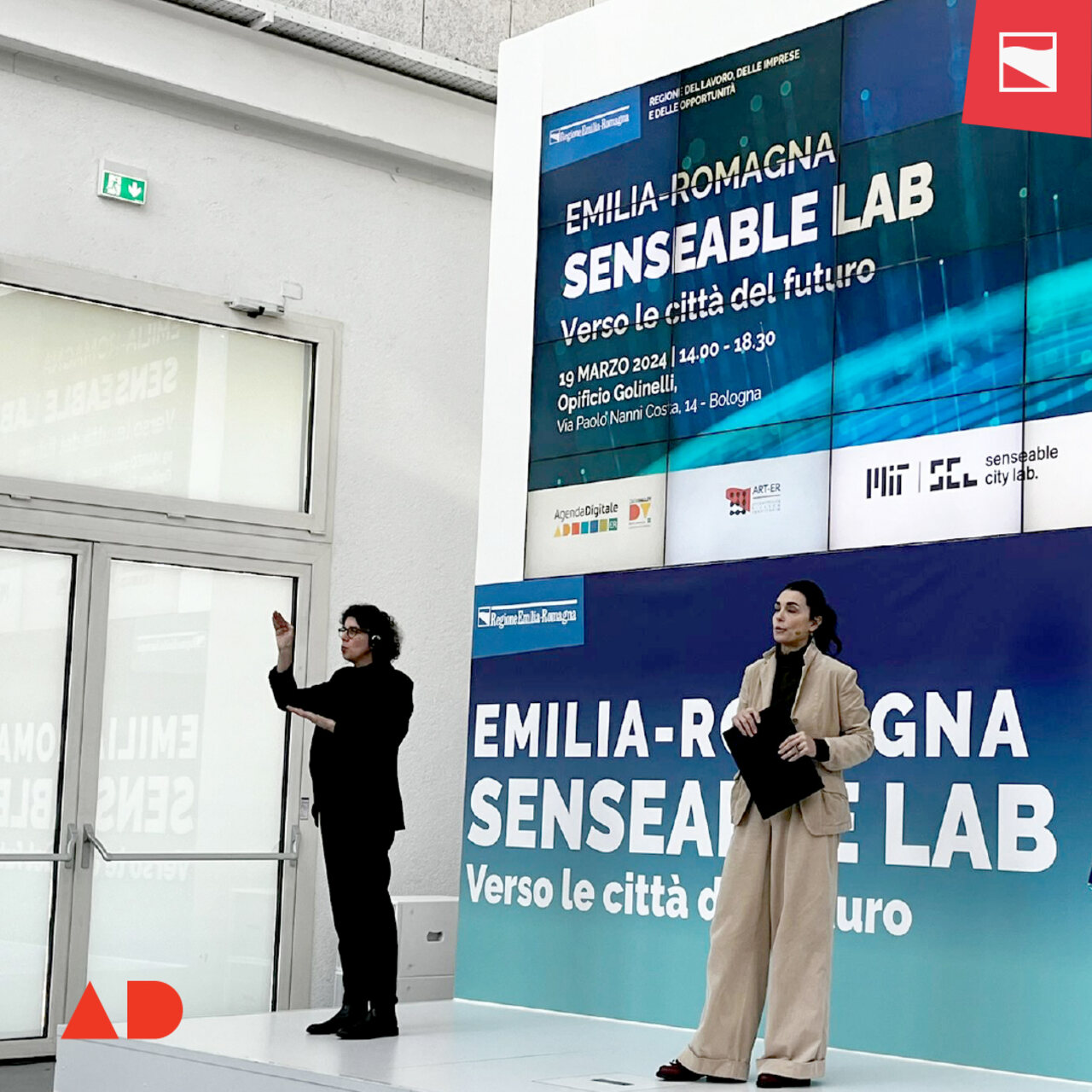
Digital twins, unprecedented opportunities for people and new frontiers opened by sensitive cities
The work continued in the afternoon with three thematic workshops conducted by experts from the Senseable City Lab on digital twins, the new opportunities for the protagonism of people that arise from the interaction between technology and citizenship and the new frontiers opened by sensitive cities, between the use of sensors and data processing.
A transversal theme at all working tables is the contribution that the digital transition can bring to reducing the climate footprint of large urban centers and how it can promote adaptation and resilience to climate change.
Video, the Bologna Technopole illustrated by Stefano Accorsi
The "Senseable City Lab", the laboratory that is part of the Department of Urban Studies and Planning of the Massachusetts Institute of Technology (MIT) in Boston, has started a feasibility study in view of its establishment at the Tecnopolo of Bologna from 2025, subsequently to the agreement with the Emilia-Romagna Region
The “Emilia-Romagna Senseable Lab” conference was organized on 19 March 2024 by the Region with the participation of the President Stefano Bonaccini, the Councilor for Research and the Digital Agenda, Paola Salomoni, the Director of the MIT Senseable City Lab, Carlo Ratti, and the President of CINECA, Francesco Ubertini
The "Senseable City Lab", the laboratory that is part of the Department of Urban Studies and Planning of the Massachusetts Institute of Technology (MIT) in Boston, has started a feasibility study in view of its establishment at the Tecnopolo of Bologna from 2025, subsequently to the agreement with the Emilia-Romagna Region
The "Senseable City Lab", the laboratory that is part of the Department of Urban Studies and Planning of the Massachusetts Institute of Technology (MIT) in Boston, has started a feasibility study in view of its establishment at the Tecnopolo of Bologna from 2025, subsequently to the agreement with the Emilia-Romagna Region
The “Emilia-Romagna Senseable Lab” conference was organized on 19 March 2024 by the Region with the participation of the President Stefano Bonaccini, the Councilor for Research and the Digital Agenda, Paola Salomoni, the Director of the MIT Senseable City Lab, Carlo Ratti, and the President of CINECA, Francesco Ubertini
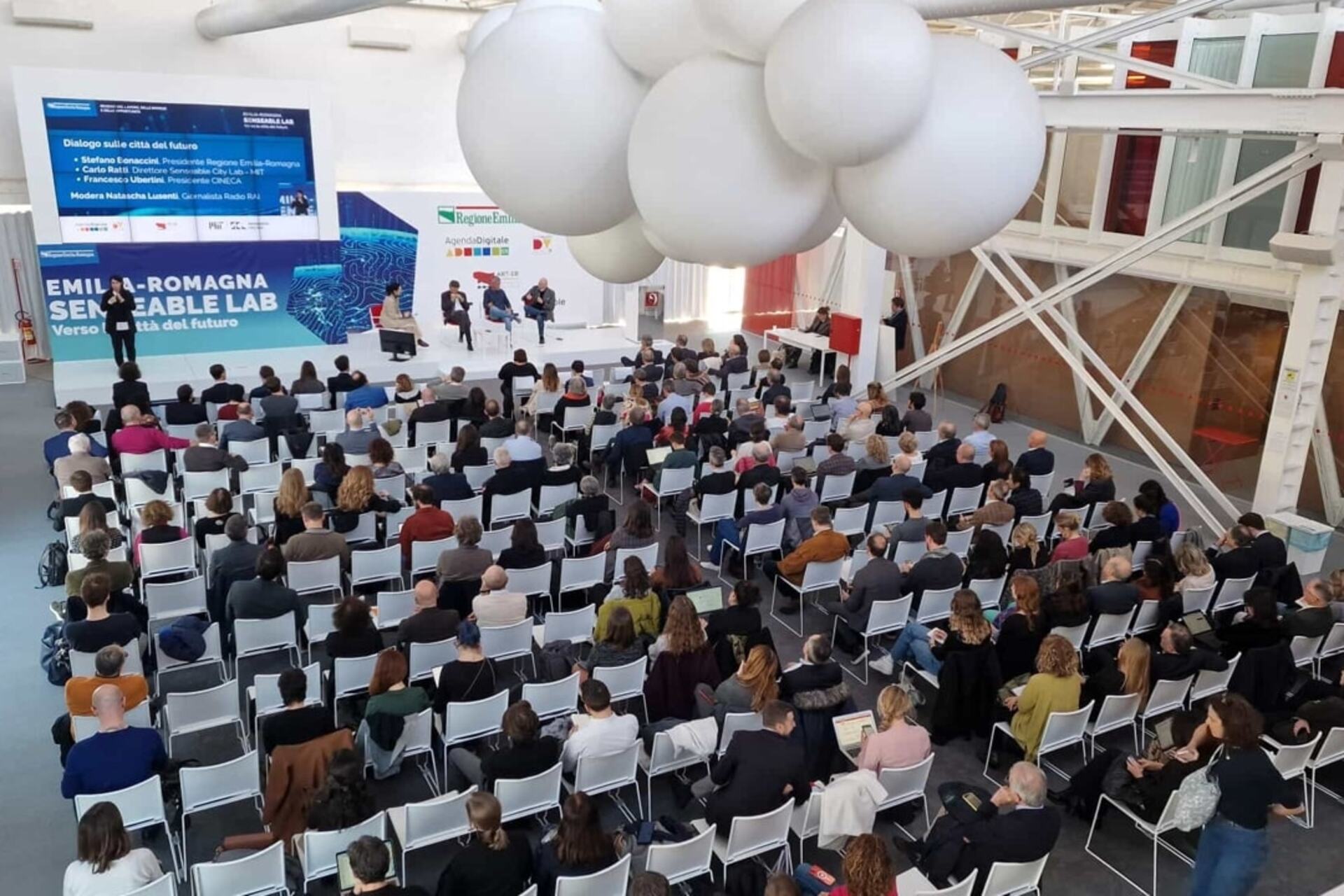
You may also be interested in:
In Brazil the first meeting in the world between biosafety and synchrotrons
In Campinas, a NB4 level maximum biological containment laboratory will be connected to the light sources of a particle accelerator
In Alto Adige today EDIH NOI is the new point of reference for AI
4,6 million euros from the PNRR fund will be allocated to Bolzano for services to local companies in the digitalisation of intelligence…
by Editorial staff Innovando.NewsEditorial staff of Innovando.News
Austria, Germany and Switzerland for "more innovative" cargo railways
DACH Ministers Leonore Gewessler, Volker Wissing and Albert Rösti: the introduction of Digital Automatic Pairing is a key element
by Editorial staff Innovando.NewsEditorial staff of Innovando.News
Persuasion or manipulation? Genesis and historical impact of PR
This is how Public Relations, from the sophistic dialogue of ancient Greece to the current digital era, continues to offer continuous innovation

